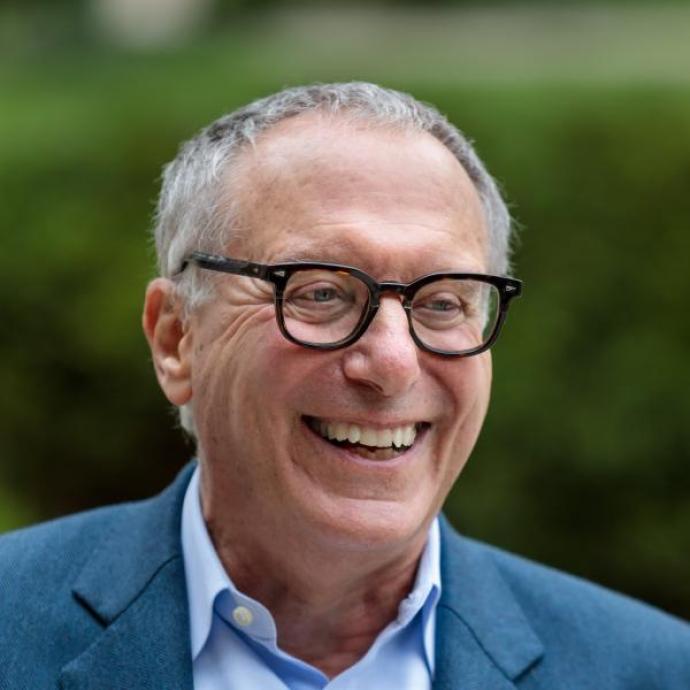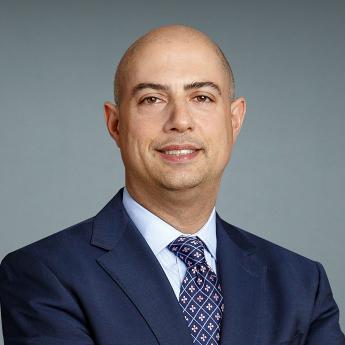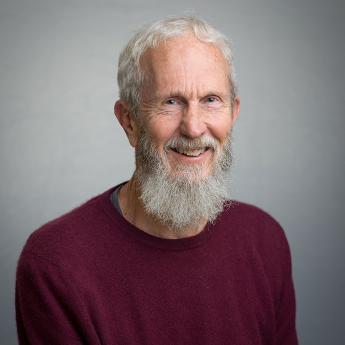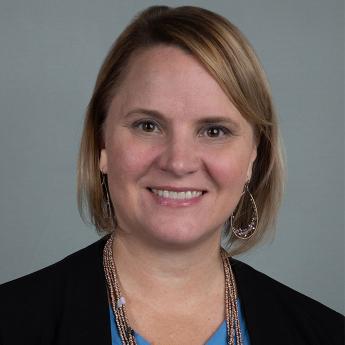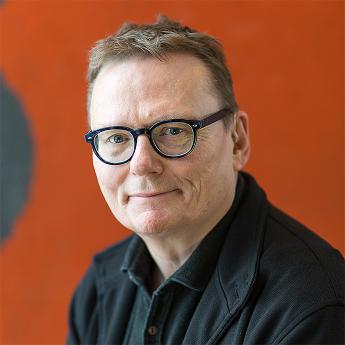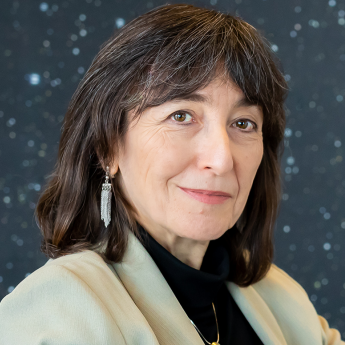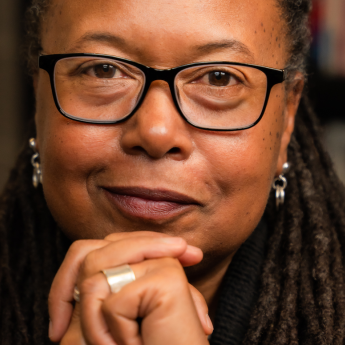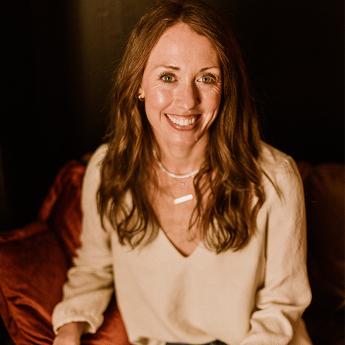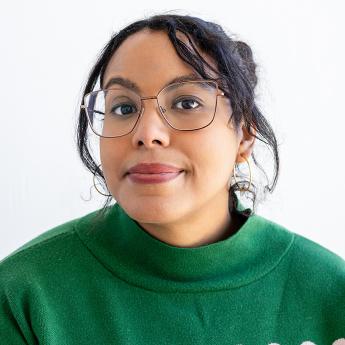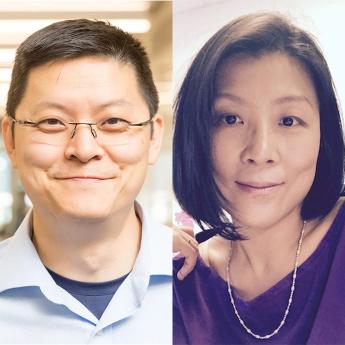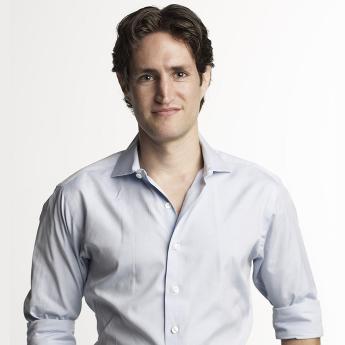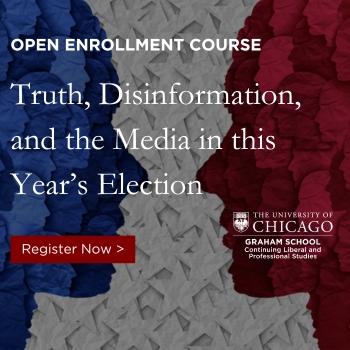Show Notes
Mourning is an inevitable part of our human existence. But what exactly does it mean to mourn, and why is it an essential part of our well-being and survival? These questions have long fascinated Prof. Jonathan Lear, a philosopher at the University of Chicago.
In his new book, Imagining the End: Mourning and Ethical Life, Lear unpacks why mourning contributes to a life well lived. He dissects the many ways we mourn in our everyday lives; when attachments are taken away from us, and even when we express gratitude.
Subscribe to Big Brains on Apple Podcasts, Stitcher and Spotify. And click here to subscribe to the new Big Brains newsletter.
(Episode published March 2, 2023)
Related:
- Learn more about Imagining the End: Mourning and Ethical Life
- Tears of Things: Two Books on Mourning—National Review
- Is There Hope for Free Speech and Ideological Diversity in American Universities?—Wallstreet Journal
- The Philosophy of Mourning—Commonweal Magazine
- Out of unbearable loss, a vision of radical hope—Washington Post
Transcript:
Paul Rand: Big Brains is supported by the University of Chicago Graham School. We open the doors of UChicago to learners everywhere. Experience the university’s distinctive approach to inquiry through our online and in-person courses in the liberal arts, culture, science, society, and more. Learn with imminent instructors and extraordinary peers in small, interactive classes. Spring course registration opens February 6. Visit graham.UChicago.edu/bigbrains.
Paul Rand: The end. No, your podcast player isn’t playing in reverse. That’s just what this episode is about, endings. I mean, everything ends. Movies end. Songs end. Podcasts End.
Matt Hodapp: Big Brains is a production of the University of Chicago Podcast Network.
Paul Rand: Days end, weeks, months, eventually even our lives, of course, will end. But these days, the end seems to encompass more than just our lives. There is a feeling, you’ve probably had it. I’ve had it. We’re all familiar with it. A feeling that the end of, well, everything is near.
Tape: The novel coronavirus outbreak is spreading across the world.
Tape: The evidence is everywhere. Burning forests in Argentina, massive floods in Bangladesh, drought in Spain. The impacts of climate change are here and they’re getting worse.
Tape: Ever since this war started, there’s been a lot of concern about Russia’s nuclear arsenal.
Paul Rand: Here at the University of Chicago, we have something called the Doomsday Clock.
Tape: The Doomsday Clock is a symbolic timepiece showing how close the world is to ending.
Paul Rand: Every year, a team of scientists moves the clock to symbolize how close they believe we are to existential destruction. This year ...
Tape: It is now 90 seconds to midnight.
Paul Rand: That’s closer than it’s ever been before. So the concept of the end doesn’t feel like some far off abstract idea anymore. It’s something we carry around with us all the time.
Jonathan Lear: It’s not just a sort of passing thought. It’s on people’s minds and it’s on people’s minds because it’s hard to ignore. It’s a cultural force that imposes itself on us all the time.
Paul Rand: That’s Jonathan Lear. Lear is a professor in philosophy and the John U. Neff Committee on Social Thought at the University of Chicago. He is the author of a new book, Imagining The End, which explores from many different angles, how we deal with loss and make meaning through that loss.
Jonathan Lear: But I think one of the experiences of living through, especially the year of confinement, was a sense of it’s very, very hard to see into the future. And it felt to me like a fog and I didn’t know what to do. It felt like if you try to do something like turn on the high beams, it makes it worse. You still can’t see. Maybe it’s all going to come to an end, maybe things are going to get worse.
Paul Rand: If you’re a longtime listener of Big Brains, you may know that we often focus on experts with new discoveries and breakthroughs. But that doesn’t tell us how to think about and deal with the concept of existential threats in the present. For that, it helps to have a philosopher.
Jonathan Lear: What are we two do with the, in some sense, the self-knowledge that we are transient beings. Individually, we have every reason to think the human race will die out at some point, the universe as we know it will go. That transient is internal, a sense of transient and what to think about it and how to live with it well or not so well.
Paul Rand: One of the most prominent ways we live that transience is through mourning, and Lear believes that concept, mourning, may be just what we need to find our way through the fog of our current moment.
Jonathan Lear: Even if our imaginations are full of worries that are real and real threatening problems, there’s nevertheless a question of what are healthy uses of the imagination and what are unhealthy uses of the imagination? This is, I think, very much tied up with the general theme of mourning, which is what is it to live honestly well open-mindedly with the multifaceted sides of the phenomena, transience and human life.
Paul Rand: Welcome to Big Brains. On our show, we translate the biggest ideas and complex discoveries into digestible brain food. Big Brains, little bites. From the University of Chicago Podcast Network, I’m your host, Paul Rand.
Jonathan Lear wrote Imagining the End during the Covid 19 pandemic, a period when mourning was at the forefront of all of our minds.
Jonathan Lear: Partly you can be thinking about mourning, you can be thinking about death at any time of your life. But the very words come to have different meanings over time and through experience. And I think I was reading about mourning when I was a young man. And when you read about mourning as a young man, you don’t think you’re missing anything or there’s something you don’t understand.
Paul Rand: Right, right.
Jonathan Lear: And then later you feel there’s just so much you didn’t understand that you get through the experiences of loss, but you would put it in pretty much the same words.
Paul Rand: Yes.
Jonathan Lear: And I think that’s a fascinating part about human life and about philosophy, too, that the same words can be used at very, very different levels. And I think part of good writing is an attempt to help people along and not just stay with cliches of, for instance, in this case, mourning.
Paul Rand: Okay, well wonder if we can just start off with, when you say mourning, what is it that you mean?
Jonathan Lear: Starting off, I mean the very thing we all mean by mourning, the paradigm case of losing a loved one through death and being at the grave. Instead of just sort of moving on to some new attachment, our imaginations get busy. We begin to think, who was this person? What was our relationship really about? Where shall I go from here? And that, I think, goes to the heart of our humanity, which is we are meaning making creatures. We really do spend time trying to think, “What is this all about?”
Paul Rand: Right.
Jonathan Lear: And this links up when I talk about imagining the end. I use the end in two ways. It’s a play on the word end. One is the end of life in the sense of death, but also there’s the end of life and the sense of end of purpose, what it’s all about, and that these two come together in mourning.
Paul Rand: But we don’t always use mourning as a moment for re-imagining or making meaning. In fact, sometimes we just try to ignore it, even if it’s to our detriment.
Jonathan Lear: I ran the Neubauer Collegium for eight years. I was the director of the Neubauer Collegium, as you know. And we had lots of conferences and I attended a lot of them. And there was one on climate change and the anthrop scene. It was a very serious conference, very fascinating. And at one point, at the end of someone’s lecture, a member of the audience got up and just said, “Let me tell you something, we will not be missed.”
What interested me was it took me, I don’t know by surprise but I noticed it, was that everybody laughed. And so it wasn’t so much the comment, “We will not be missed,” but the fact that everybody experienced it as funny.
Paul Rand: I think that we’re all familiar with this kind of joke, is balm against the sting of a dark reality.
Tape: The planet isn’t going anywhere. We are. The planet will shake us off like a bad case of fleas, a surface nuisance.
Jonathan Lear: In the moment you find it funny, you have to not be thinking about the terrible loss it would involve if the human race were just obliterated. You have to be not paying attention to all the generous things people have done and kind things and beautiful things and brilliant things.
Paul Rand: Right, right.
Jonathan Lear: We’re greedy, we’re avaricious, but that isn’t the whole truth about us. And so what happens to the, I’m just interested in what happens to the human mind where all the beauty goes out of our minds in order that we can enjoy the idea of justice done. It’s a fantasy of justice done. And then somehow in some weird way, we’re on the right side of justice. We’re the people who can enjoy the fact that we’re getting rid of ourselves. And also in fantasy, escape the tension. One of the things in the book I talked about, just as a vignette, is the image of the Sunday sermon where the preacher is saying, “We’re all sinners.” And imagining somebody in the audience or in the pews say, “Well, Reverend, even you?” And if the reverend is put on the spot with a question, even you, he’ll say, “Yes, me most of all, I’m a sinner too.”
But in that moment when he is not put on the spot, he’s enjoying the position of judging us as sinners and is sort of separating him or herself. And that’s what I think part of the dynamic of the joke is when we can say, “Well, we will not be this.” Somehow there’s a kind of stealthy eye that gets to escape the death sentence and sort of enjoy the justice of it from some remove. It can be a kind of stance in life.
Paul Rand: I think anyone who has been on Twitter is familiar with this stance. As Lear writes in the book, “In the name of drawing attention to the problems we face, there is a form of discourse that discourages creativity and hope in addressing them. Despair thrives when it is not fully conscious of what it is. It portrays itself as truthfulness, as the courage to face the grim reality straight on without the wishful illusion that keep us so complacent.”
Jonathan Lear: As you know, Paul, I trained in philosophy, but I also trained as a psychoanalyst. One of the things I’ve learned over the years of seeing patients is that a lot of times you can listen to people telling their stories about what has happened to them and what has gone wrong, and the stories are true and they’re accurate. The problems of the past were real. But there’s a further question that, what imaginative use are you putting that story to? Why is it being told here and now in this particular way? And so why mourning comes across as healthy is that it is a kind of emotionally rich and imaginatively rich acknowledging of our finite vulnerability and particular vulnerability to loss. And refusal to mourn is a stance of, I’m not going to let anybody matter to me enough so that should they go out of my life, I’ll just move on.
Paul Rand: Now, when you talk about this, when you talk about mourning, you talk about it though in missing of a human. And I wonder if mourning in your mind goes beyond just a human loss.
Jonathan Lear: One of the things we can lose and mourn are ideals. It doesn’t just have to be people who we lose. We can fall in love with an ideal of some way of life and then feel that in itself is threatened. Freud wrote this essay called On Transience. And with Freud, I think the case he was dealing with himself, was trying to come to grips with the fact that we’re all going to, each of us is going to die. Up to some level, we’re aware we’re going to die. How do you deal with that? And one of the ways Freud dealt with it was with a sort of fantasy of this great progress of civilization. And even though he would die, the great values of scientific discovery would continue and he would’ve made his contribution and he would be on this sort of path of progress of rationalism and peaceful coexistence forever. And we were on a long march, but a steady path in which he could play his role.
Paul Rand: In other words, if you connect yourself to the unending progress or ideals of civilization, you can in some sense connect yourself to eternity.
Jonathan Lear: But the World War I for him, shook him up in the sense that it no longer seemed like Europe was on a steady path towards more civilization. All that came into terrible question, and that causes psychic damage and psychic threats.
Paul Rand: If your personal pride is bound up with the achievements of civilization, if it in some way falls, you lose not only those ideals, but a piece of yourself.
Jonathan Lear: Because if you inside have really lived loving the idea of, I’ll make my place by making a contribution to civilization, and then you feel all of civilization isn’t the way you thought it is or it’s not going the way you thought it is ...
Paul Rand: That’s going to be devastating.
Jonathan Lear: Yeah, it’s devastating. It’s not just that you will not be eternal, even the ideals you care about are very fragile and vulnerable. That’s hard to deal with.
Paul Rand: And in some sense, we may have experienced something like this during the pandemic.
Jonathan Lear: And I think that does come back now in the time of the pandemic, the time of where are the wars leading us? Which are the things that really matter in the sense of ideals of human flourishing and what matters in the universe?
Jonathan Lear: Two things are crucial here. One is a thought, a kind of historical thought the very concepts with which we think are themselves subject to historical forces. And so there’s every reason for us to think that, for instance, the concepts of human success, let’s say, have been very much shaped by the historical time in which we live. If we are living in historical conditions of injustice, suppose we can see injustice around us, there’s reason to think our very ideas of the good or success or flourishing may themselves be tainted with an injustice we can’t really see.
Jonathan Lear: And so one of the things I’ve come up with, I went back to Aristotle and he thought, so this is the second part of the point, he thought part of what made us very special is that we were responsive to something that in English is translated as the fine, the noble or the beautiful. The Greek word is called the kalan. The way I might put it in a modern context is to say, part of what makes us flourish or happy or content with life is feeling we’re doing something worthwhile, that we’re in the midst of a meaningful life, that it matters and there’s something special about it. The kalan is this idea of there’s something about the happy life that sort of shines forth and grabs our attention as being something special and meaningful. And we may need to figure out what that means over time. It sort of registers that we may not fully know what we’re talking about, but that we’re getting at something important. And how do you get at something important where you’re not finished thinking about what that importance really is?
Jonathan Lear: And I think that fits with human life. We all want a meaningful life, but we don’t know what it is. There’s something elusive about it. And we grasp onto this or that thing, and we try to think, “Well, this will do it.” But exactly what it is is left, it’s just in the midst of our own life that there’s something unfinished and enigmatic about it.
Paul Rand: One way could be through mourning.
Jonathan Lear: When we are making serious meaning imaginatively of what things mean in the world, why they matter, why they should matter, why some things don’t matter and shouldn’t matter, that’s what we do as humans. And we can really flourish in the meaning making business.
Paul Rand: Right.
Jonathan Lear: We are meaning makers when we’re at our best.
Paul Rand: Yep.
Jonathan Lear: And mourning is one real paradigm of human meaning making.
Paul Rand: One of the forms of meaning that Lear believes may be the most important and perhaps is an antidote to many of our ills, is through gratitude. That’s after the break.
Paul Rand: Big Brains is supported by the University of Chicago Graham School. We open the doors of U Chicago to learners everywhere. Experience the university’s distinctive approach to inquiry through our online and in-person courses in the liberal arts, culture, science, society, and more. Learn with imminent instructors and extraordinary peers in small interactive classes. Spring course registration opens February 6th. Visit Graham.uchicago.edu/BigBrains.
Paul Rand: If you’re getting a lot out of the important research that’s shared on Big Brains, there’s another University of Chicago Podcast Network show that you should check out. It’s called Capitalisn’t. Capitalisn’t used as the latest economic thinking to zero in on the ways that capitalism is and more often isn’t working today. From the debate over how to distribute a vaccine to the morality of a wealth tax, Capitalisn’t clearly explains how capitalism can go wrong and what we can do about it. Listen to Capitalisn’t, part of the University of Chicago Podcast Network.
Paul Rand: Well interestingly, with all of these discussions, the word of gratitude comes up into this. As you start ending the book after all of this discussion about mourning, the idea of tying in gratitude really plays a prominent role here.
Jonathan Lear: Yeah, gratitude’s very fascinating because on the one hand, the expression of gratitude is gratifying for both to the person who expresses the gratitude and also to the people who recognize that their act of love has been recognized. But what it is, is a recognition of the freedom of this exchange, that there isn’t a kind of, you might say, normal economy of, give me a gift and then I’ll give you one back. You invite me to dinner and I bring a bottle of wine. That the normal economy of gift and reciprocation has been transcended.
Paul Rand: In this way, Lear says that feeling gratitude is really a gift given twice. Not only do we enjoy the gift itself, but also the lack of need to reciprocate. When you start to think about it, there is almost no other human relationship with those parameters.
Jonathan Lear: You’re genuinely entering the realm of freedom, recognizing it’s this act of love or this gift or this thing has been given to you with no strings attached, just absolutely free. And gratitude is the recognition of that freedom and the preservation of it in memory and in living.
Paul Rand: As he writes in the book, “It is an openness to being a beneficiary via activities of imagination and memory, receptiveness and acknowledgement, and to return to the beginning. This is a form of mourning attacked by those who say of the human endeavor in general, we will not be missed.”
Jonathan Lear: Part of what I’m interested in is gratitude is a form of looking back, you might say, in gratitude to what has happened to me. So it’s a form of keeping the past alive in memory. It’s got the same kind of imaginative structure as mourning, but it’s the way of preserving in memory and imagination. You might say the upside is the opposite of loss, which is the mourning. This is the upside of preserving this happened, and maybe it’s over now, maybe there is a loss. But something very special happened in the realm of freedom and love.
Paul Rand: Well, as you went toward the wrap up, talk about the book, you also kind of got into this idea almost defending the humanities a bit. And one of the ways you did it is by talking about a story about Megan Markel, which is certainly, as we talk about this is certainly in the news with the book that’s out. And I wonder if you can walk us through that story and how you came to the defense of the humanities in telling that.
Jonathan Lear: Well, I was listening to the Oprah interview. In the interview, Megan Markel says that she didn’t actually get married on the public occasion where the whole world was celebrating the marriage, that actually she and Harry were married three days previously in a private ceremony in their back garden with the Archbishop of Canterbury.
Meghan Markle: Three days before our wedding, we got married. No one knows that. But we called the Archbishop and we just said, “Look, this thing, the spectacle is for the world, but we want our union between us.”
Jonathan Lear: Now I’m a philosopher, so I sat up immediately when I heard that because nobody can get married if you don’t think that’s what you’re doing. If you just sort of write your name down on what you think is a scrap piece of paper, but it turns out it’s an invisible link and it comes up and it’s a contract, you haven’t signed the contract. You have to have some minimal understanding that you’re signing a contract. And ditto with getting married. You have to be in your right mind to be married, and that means you may not want to be married, you may be ambivalent about it, you may wish you were somewhere else, but you understand you’re getting married, and that’s part of the wedding ceremony. So once I heard, according to her, the wedding occurred a few days earlier, it became very unclear to me when or even if they got married because the next day in the paper, the Archbishop of Canterbury said, well, he wasn’t marrying them those three days ago. He married them on the public occasion. Now, on the public occasion, how could they have gotten married if both of them thought they couldn’t get married because they were already married? That’s what philosophers do, but it’s actually quite important.
Meghan Markle: So the vows that we have framed in our room are just the two of us in our backyard with the Archbishop of Canterbury, and that was the piece that ...
Tape: Three of us. Just the three us.
Meghan Markle: Just the three us.
Jonathan Lear: And now the question comes, okay, how do you think about the reality of marriage? Now we’re in the land of concepts, which is what philosophers think about, which is what is it to be married or to get married? What is a marriage such that this one is and the other one is just a phony or a fake? And now this is where I think the humanities comes in. I think one of the huge benefits of the humanities when it’s being done well, is that it gives an individual student or learner the ability to range over space and time, thousands of years and all over the world in all sorts of directions, trying to find out, what have human beings thought throughout their lives of self-conscious recording? What matters? What is it to get married or what isn’t it to get married? What are the important concepts? What is happiness? What is it for us to flourish? Thousands of years of thinking this all over the globe that provides a form of freedom to experiment.
Jonathan Lear: I don’t think Megan, she knew that the public occasion wasn’t adequate to her understanding of marriage, but the humanities would give so much richness into opening up the question of, well, what should a marriage be? And that all I want to say, and this is part of the argument of the book, I think the humanities itself is a form of mourning because it is the attempt to keep alive in imagination what has already been contributed and but for the work of humanists, would be lost. It would be completely gone.
Meghan Markle: Yes.
Jonathan Lear: The only reason I can, I have the privilege of studying Aristotle, I’m not pushing him above others, but it’s just my life, the only reason I’ve been able to study Aristotle is that thousands of years that people have been trying to keep Aristotle’s thought alive through study reproduction of the manuscripts. If it weren’t for this sort of communal activity of mourning, it would be gone. All the thought would be gone. And so the book is really an attempt to sort of explain the meaning of ... this is very different from social science or social science research, which is incredibly important. It’s very different than scientific research. It’s a different habit of mind. And so I don’t think it’s just another form of research on a different topic. It’s a different manner of being, and it’s the form of mourning. And I think the humanities are a form of mourning.
Paul Rand: Well, we’ll be mourning the end of this podcast. But just as Lear says, that morning is an opportunity to reflect on where we found meaning over the last 30 minutes and where we realize what truly matters to us. Maybe if we spent more time in mourning, we could make our world a more meaningful place.
Matt Hodapp: Big Brains is a production of the University of Chicago Podcast Network. If you like what you heard, please leave us a rating and review. The show is hosted by Paul M. Rand and produced by me, Matt Hodapp And Lea Ceasrine. Thanks for listening.
Episode List
What happens when we die? with Sam Parnia (Ep. 148)
Research on consciousness sheds new light on the line between life and death
Can we predict the unpredictable? with J. Doyne Farmer (Ep. 147)
Using complexity economics and chaos theory, scholar leverages big data to forecast everything from the stock market to roulette
Unlocking the Secrets of ‘SuperAgers,’ with Emily Rogalski (Ep. 146)
Neurologist explains why some 80-year-olds with exceptional memories are defying aging
Nobel laureate explains what makes countries fail or succeed, with James A. Robinson (Ep. 145)
Economist examines global inequality and what drives prosperity and poverty
Why can’t scientists agree on the age of the universe? with Wendy Freedman (Ep. 144)
A renowned cosmologist explains conflicting research around the Hubble constant and the Standard Model of physics
What are we getting wrong about young voters?, with Cathy Cohen (Ep. 143)
GenForward survey examines Gen Z’s and millennials’ views on the issues, candidates in the 2024 election
Why are more women saying no to having kids?, with Peggy O'Donnell Heffington (Ep. 142)
Book examines the complicated history of motherhood and choosing to be childfree
How homeownership shaped race in America, with Adrienne Brown (Ep. 141)
Book goes beyond the history of discriminatory practices to show how homeownership changed our perceptions of race
Fighting back against AI piracy, with Ben Zhao and Heather Zheng (Ep. 140)
Creators of Glaze and Nightshade copyright protection tools are helping artists fight back against generative AI
Feeling stuck? Here’s how to achieve a breakthrough, with Adam Alter (Ep. 139)
Scholar shares research on the tools to help overcome difficulties—from a job to a relationship
